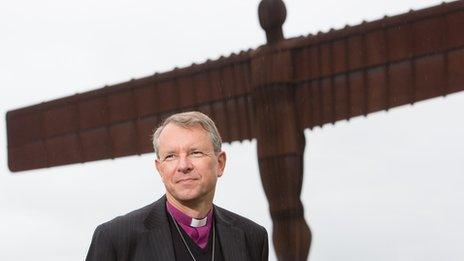Bishop of Durham set to retire in February
- Published
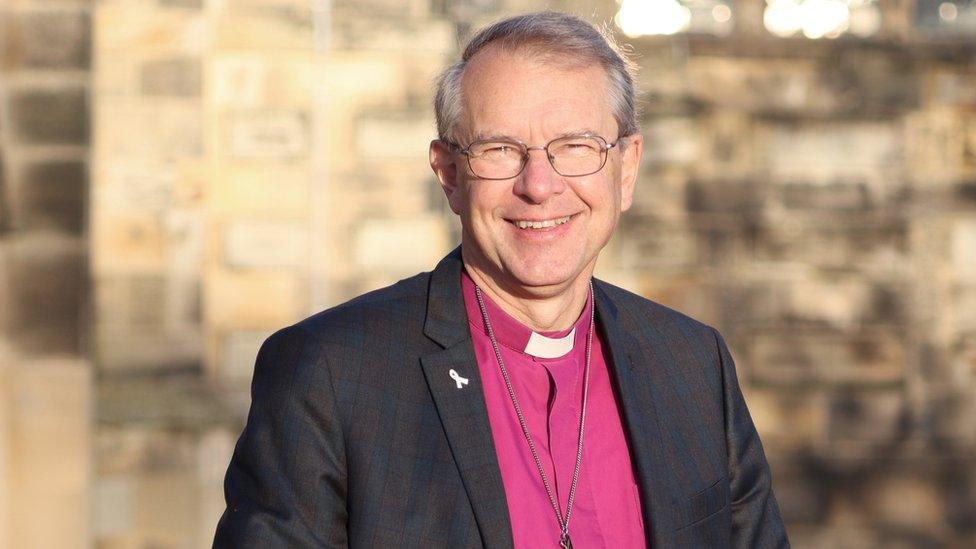
Bishop Butler said he would miss County Durham's "people and places deeply"
The Bishop of Durham is to retire in February, after 10 years in the role.
The Right Reverend Paul Butler, 68, said he and his wife would "deeply" miss the people and places it had been a "huge privilege and honour" to serve.
An advocate for the north east of England, he has been a champion of education, young people and the poorest in society, often speaking up for the rights of refugees and asylum seekers.
The search for his replacement will begin once he leaves the post.
Bishop Butler said: "Rosemary and I have loved the variety, beauty and challenges of this diverse diocese.
"It is my hope and prayer that my ministry has helped God's church truly be a blessing to our communities for the transformation of all from the Tyne to the Tees and the Dales to the sea."
The couple, who have four children and two grandchildren, are planning to retire at the same time.
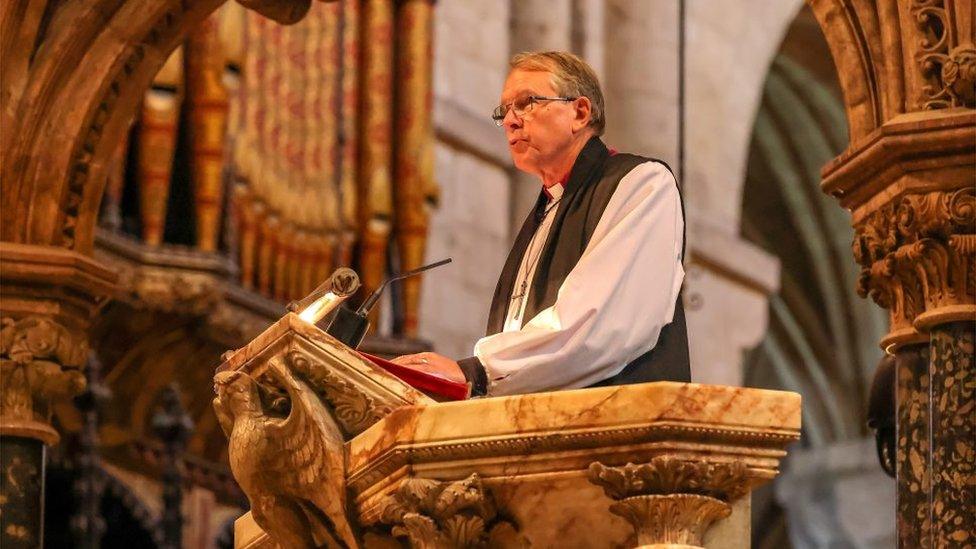
The Bishop of Durham has been described as a champion of "the poor and refugees"
Bishop Butler was installed and enthroned as Bishop of Durham in February 2014, succeeding Justin Welby, now Archbishop of Canterbury. At the time he said tackling poverty was his "priority".
Archbishop of York Stephen Cottrell said: "His [Bishop Butler's] lifelong commitment to ministry with and for children and young people is now reflected in the national strategy of the Church of England.
"He has also been a great champion of the poor and of refugees."
Welfare cuts criticism
He was ordained in London in 1983 and has served as Bishop of Southwell and Nottingham and Suffragan Bishop of Southampton.
In May, he was bishop assistant to King Charles during the Coronation at Westminster Abbey.
The Right Reverend Sarah Clark, Bishop of Jarrow, paid tribute to Bishop Butler as "a voice for those who struggle to get heard".
She said: "We are particularly grateful for his leadership in the hard times of the pandemic where his love for all our communities put people at the heart of all we did."
Bishop Butler holds one of the permanent Lords Spiritual seats in the House of Lords where he has campaigned for the rights of refugees and asylum seekers.
He has also been critical of cuts to Universal Credit and the two-child limit on welfare benefits, warning the move would lead to an increase in the number of children "living in relative poverty".

Follow BBC North East & Cumbria on Twitter, external, Facebook, external and Instagram, external. Send your story ideas to northeastandcumbria@bbc.co.uk, external.
Related topics
- Published2 May 2023
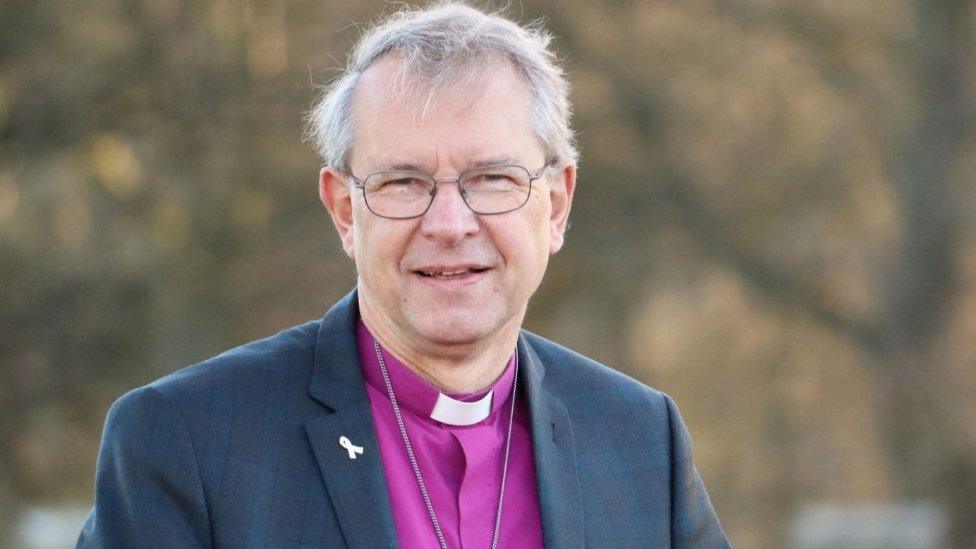
- Published17 September 2022
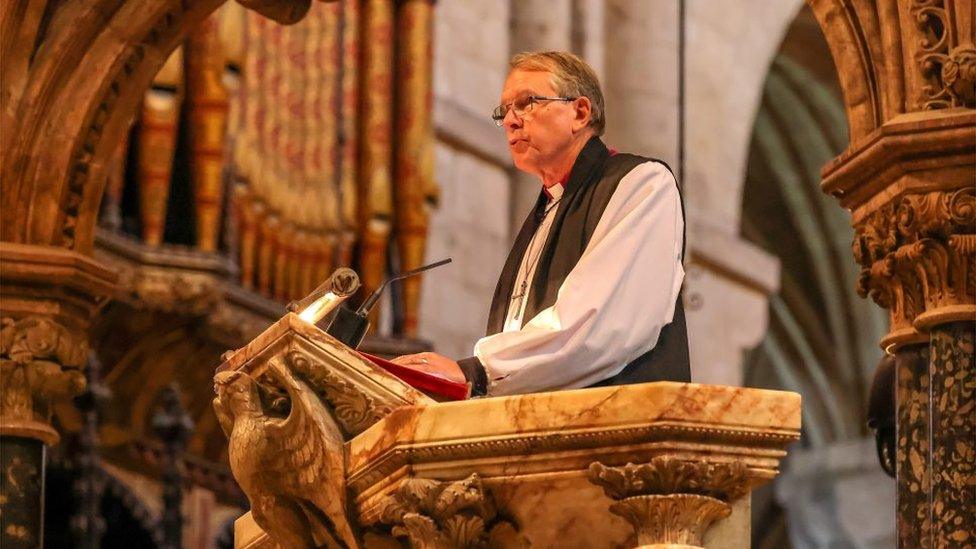
- Published25 March 2018
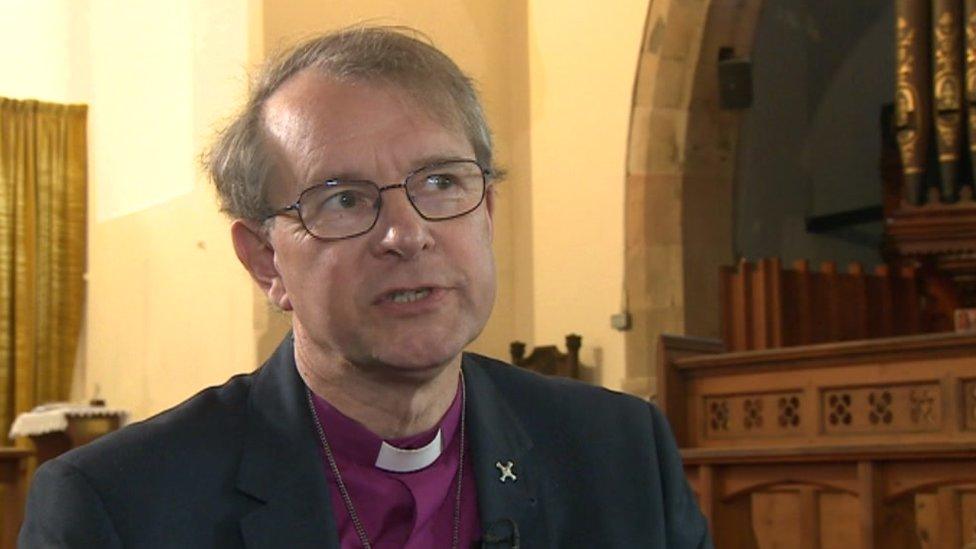
- Published12 September 2013
